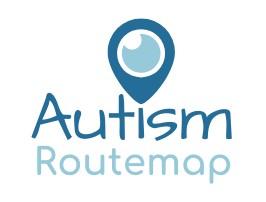Helping your child to embrace uncertainty

If ever there’s been a year of uncertainty, it’s this one! 2020 has launched us into the world of the unknown. Schooling has been disrupted. Work-life has changed. Events have been cancelled or postponed. Trips to the supermarket have been reshaped. Things we used to take for granted, like visiting friends and family have been restricted. On the world stage, we’ve seen economic and political instability. And many of us, myself included, have lost loved ones. What a year so far!
Nations are now counting the cost. Wondering how the coffers can be replenished and how we go about creating a sense of normality. Faced with instability, our natural instinct is to try and create order. To make plans even if we know they may change. I told my daughter, who is due to return to school next week, “The plan, for now, is ….”. The last few months have taught us both that some degree of tweaking will probably be needed.
Uncertainty unsettles. We prefer absolutes. We like to know that we aren’t going to be caught unawares. And whilst this is true for all of us, it’s especially true for autistic people.
Something I’ve noticed over the years is that uncertainty continues to pose a problem - even in adulthood – for those on the spectrum. One woman described her partner as becoming “stressed and anxious” and finding it “extremely difficult to cope with uncertainty”. Another woman related how she creates detailed lists when going away on holiday so that there are no surprises. When it comes to food, she knows where the restaurants are, what’s on the menu, what the cost is and exactly how far they will have to drive to get there. Although both of these people are highly capable, articulate and educated, uncertainty for them can be paralysing and extremely restricting.
The thing is … children who are neurologically wired to find uncertainty hard, grow up to become adults who are neurologically wired to find uncertainty hard. And that’s why, it’s essential that we support children early on to develop skills that enable them to cope better when faced with change.
As parents, we naturally want to protect our children from discomfort. We are constantly providing for their physical and emotional needs. Our instinct is to protect and shelter them from the storms of life. It’s no wonder then, that parents of children who find change hard, seek to control the negative impact by keeping things the same. If your child cries when you give them a different brand of cereal, it’s unlikely that you’ll do that again. So, you stick to the routines and familiarity that your child craves. You recognise that it helps them to feel calm.
Managing the environment is an important aspect of helping autistic children to feel safe. But as you also know, growth happens in the face of adversity. Some of the best inventions were birthed in times of hardship. Think of Alan Turing. Turing was a mathematician who built a machine to decode messages sent by the Nazis during the second World War. His machine, affectionately known as Christopher, is said to have shortened the war by over two years, saving more than 14 million lives. Turing’s machine was the forerunner of today’s computer – without which I wouldn’t be writing this article!
If you want to develop your physical muscles, you need to lift weights - often. The same applies to emotional resilience. Regular practise and a little discomfort are necessary components.
Now, I am not suggesting that you make your child miserable. There is a fine line between sinking and swimming when it comes to managing emotional situations. This is about gently expanding your child’s comfort zone so that they are not incapacitated by fear in the face of change but rather, they are equipped to manage it.
As you know, children learn far more from our example than from our words. So, when your child shows signs of stress, help them to work through it. Use a calm voice and let them know that they are OK (assuming of course, that your child is reacting to a perceived threat rather than an actual threat). Stay with your child so that they can gain comfort from your presence.
Aim to introduce small changes regularly. Regular exposure is a known way of reducing fear. Stick to one change at a time so that your child doesn’t become overwhelmed. And keep the changes small so that they are manageable. Here are some ideas for you to consider:
- Try different food types, or if your child is very sensitive, a different food brand.
- Offer a choice of two toys that your child doesn’t normally choose to play with.
- Sit in different places at the table.
- Use different crockery or cutlery.
- Take a different route when walking or driving somewhere familiar.
- Change your daily routine.
- Have surprise days – a change card is included in the pack of 48 timetable pics for younger children which is available for £5.99 and can be accessed here.
And finally, if you are still waging an internal war against the current situation, be encouraged by the words of Mary Hale: “Trust the wait. Embrace the uncertainty. Enjoy the beauty of becoming. When nothing is certain, anything is possible”.
To you and your parenting journey!
Linda Philips
Parenting Autism
https://www.parentingautismcoach.com
Parenting Autism supports parents of young autistic children with coaching and training to improve communication, interaction, and emotional regulation skills. Interested in knowing how we can help? Contact [email protected] or book a free strategy call here.

